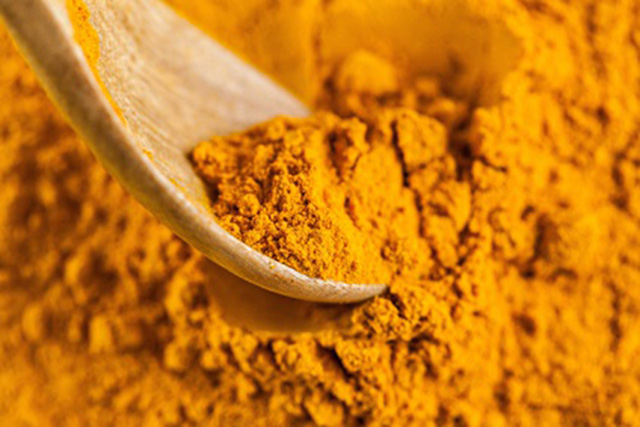Turmeric is one of the most potent healing spices in the world. It is one the most researched plants in the world. There are so many reasons to eat turmeric. The medicinal properties of turmeric have been the subject of over 6000 peer-reviewed and published biomedical studies. New research shows that turmeric kills cancer-causing yeast.
The new study suggests that yeast is not just a by-product of cancer, but an actual contributor to the disease as well.
The study abstract provides the following background about the study:
“There is currently increasing concern about the relation between microbial infections and cancer. More and more studies support the view that there is an association, above all, when the causal agents are bacteria or viruses. This review adds to this, summarizing evidence that the opportunistic fungus Candida albicans increases the risk of carcinogenesis and metastasis. Until recent years, Candida spp. had fundamentally been linked to cancerous processes as it is an opportunist pathogen that takes advantage of the immunosuppressed state of patients particularly due to chemotherapy. In contrast, the most recent findings demonstrate that C. albicans is capable of promoting cancer by several mechanisms, as described in the review: production of carcinogenic byproducts, triggering of inflammation, induction of Th17 response and molecular mimicry. We underline the need not only to control this type of infection during cancer treatment, especially given the major role of this yeast species in nosocomial infections, but also to find new therapeutic approaches to avoid the pro-tumor effect of this fungal species.”
Another new study now shows that turmeric may be a potent fighter against cancers that have a yeast/fungal component to them.
The authors wrote:
“Curcumin, a natural component that is isolated from the rhizome of Curcuma longa plants, has attracted great interest among many scientists studying solid cancers over the last half century. Interestingly, curcumin provides an ideal alternative to current therapies because of its relatively safe profile, even at high doses. To date, curcumin’s potent antifungal activity against different strains of Candida, Cryptococcus, Aspergillus, Trichosporon and Paracoccidioides have been reported, indicating that curcumin anticancer drugs may also possess an antifungal role, helping cancer patients to resist invasive fungal infection related complications. The aim of this review is to discuss curcumin’s dual pharmacological activities regarding its applications as a natural anticancer and antifungal agent. These dual pharmacological activities are expected to lead to clinical trials and to improve infection survival among cancer patients.”
The authors also explained that most traditional cancer therapies have serious side effects. Turmeric holds much promise because it has similar effects to traditional treatments without the harmful side effects.
The study authors conclude:
“Curcumin is an up-and-coming drug of natural origin with multi-target properties, and it has exhibited efficient anticancer and antifungal activities alone or in combination with conventional chemotherapy drugs and antifungal agents. The dual pharmacological activities of curcumin may make it a good candidate for the prevention and treatment of cancer and its cancer-related invasive fungal infection related complications. Further investigation is necessary to clarify curcumin’s anticancer and antifungal mechanisms for better understanding. In spite of the useful biological activities of curcumin, its poor water solubility and low bioavailability hinders its clinical applications. Various nano-sized curcumin delivery systems, such as nanoparticles, nanospheres, solid lipid nanoparticles, micelles, and liposomes have been shown to overcome these shortcomings and significantly improve the anticancer and antifungal activities of curcumin. Many studies on curcumin and its nanoformulations are still in the preclinical stage at present. A clinical trials stage is necessary to unlock the potential of curcumin nanoformulations as a therapeutic strategy for treating cancer and its IFI complications.”
The study showing that turmeric kills cancer-causing yeast was published in the European Journal of Pharmacology.
Note: None of the information in our website is intended to diagnose, treat, cure or prevent any illness or disease. The content on our website is for educational purposes only.
DON’T FORGET to sign up for our weekly newsletter to get our latest articles, updates, free recipes and giveaways.
For a turmeric cancer prevention tea.
Hundreds of reasons to use turmeric.
Could turmeric be a cure for diabetes?
REFERENCES:
1. “Yeast Is A Cause of Cancer And Turmeric Can Kill Both, Research Confirms.” GreenMedInfo.com. GreenMedInfo.com, n.d. Web. 11 Jan. 2016.
2. “Curcumin and Its Promise as an Anticancer Drug: An Analysis of Its Anticancer and Antifungal Effects in Cancer and Associated Complications from Invasive Fungal Infections.” National Center for Biotechnology Information. U.S. National Library of Medicine, n.d. Web. 11 Jan. 2016.
3. “Candida Albicans and Cancer: Can This Yeast Induce Cancer Development or Progression?” National Center for Biotechnology Information. U.S. National Library of Medicine, n.d. Web. 11 Jan. 2016.


















